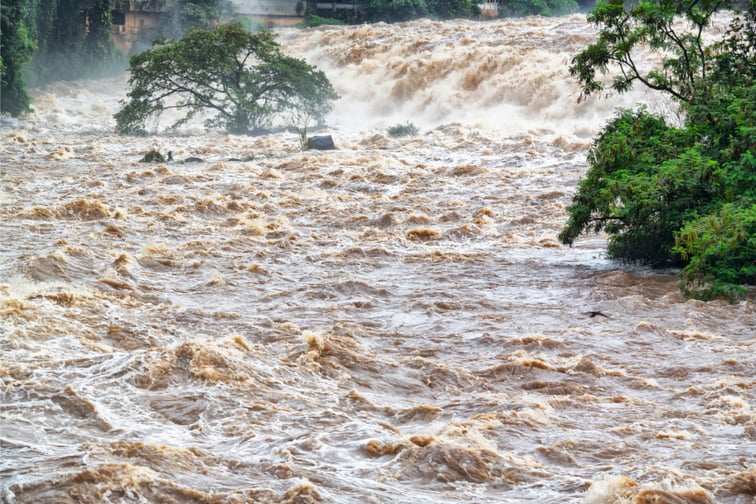

In June last year, a storm caused severe flooding in the Gippsland and Yarra Ranges east of Melbourne. The Insurance Council of Australia (ICA) declared the event an Insurance Catastrophe which activated the deployment of disaster specialists to help deal with the recovery effort.
More than 32,000 damage claims were received by insurers with losses estimated at $281 million. More than 90% of the claims were for storm and water damage to homes.
Last week, the ICA followed up its relief efforts by hosting virtual one-on-one consultations for residents affected by the storms. The ICA agreed to share insights from those meetings with Insurance Business.
“Claims discussions revolved around the significant and ongoing COVID related impacts on the building industry, specifically building material supply issues, and, in recent weeks, the reduction of available labour due to illness and isolation requirements,” said an ICA spokesperson.
“Delays in the repair process are a significant point of concern for customers keen on moving forward with repairs and rebuilds.”
The entire building industry is severely impacted by pandemic induced delays.
Simon Garske, head of construction for Agile Underwriting Services, recently told IB that project delays are a major challenge.
“Project time periods are really getting delayed, because of these shutdowns, or because they’re struggling to get materials, or workers, a whole host of reasons,” he said.
One of those, he said, is building materials from China and across Asia are hard to get due to ongoing supply chain problems from pandemic-induced factory and port closures.
In other cases, Garske explained, demand in the United States has cornered limited supplies and contributed to increasing costs for materials like aluminium, plumbing fixtures and tiling.
It’s also harder to find workers. Pre-COVID, a proportion of the construction industry’s labour force came from overseas, including backpackers. That labour force is no longer available.
The ICA also said that the Victorian residents involved in their virtual consultations wanted more communication from their insurance companies.
“Yarra Ranges policyholder feedback included a desire for more frequent communication between the insurer and policyholder and taking the time to explain terminology and complex matters like scope of works, building codes, and planning and development requirements,” said the ICA spokesperson.
Brokers have complained to IB about similar difficulties communicating with insurance companies.
Carl King, managing director of Perth-based Apollo Risk Services, said since the COVID-19 pandemic, his claims team have trouble just getting insurance companies to answer their phones.
“My claims department has come to me with their hands in the air saying, ‘We’ve been on the phone for 45 minutes and as soon as we get through, we get cut off!’” he said.
He said the current situation is very frustrating for brokers, but more so for their clients - like the policyholders in the Gippsland and Yarra Ranges.
The ICA said industry consultations conducted with policyholders were an opportunity for the ICA and insurers to receive direct feedback from the community.
“This feedback helps us adjust our approach where needed, as an industry, to the things that are important,” said the ICA spokesperson.
Earlier this month, the ICA welcomed a pledge by the federal opposition to overhaul Australia’s $4.7 billion emergency response fund. Opposition leader Anthony Albanese recently said that a Labor government would commit $200 million a year towards disaster prevention.
Nick Hawkins, managing director and CEO of insurance giant IAG, said that Labor’s plan is “a positive step forward for the nation.”
Earlier last year, the ICA also welcomed the federal government’s increased commitment to disaster mitigation funding in the federal budget.
“The Productivity Commission’s estimate that 97% of all disaster funding in Australia is spent after an event, with just 3% spent on mitigation measures ahead of a disaster, shows that the federal government’s commitments are a historic first step towards redressing that imbalance,” said Andrew Hall, the ICA’s chief executive officer.
“Insurers look forward to working with the government and other stakeholders on the design and implementation of the cyclone reinsurance pool ahead of its implementation mid-2022,” he added.
